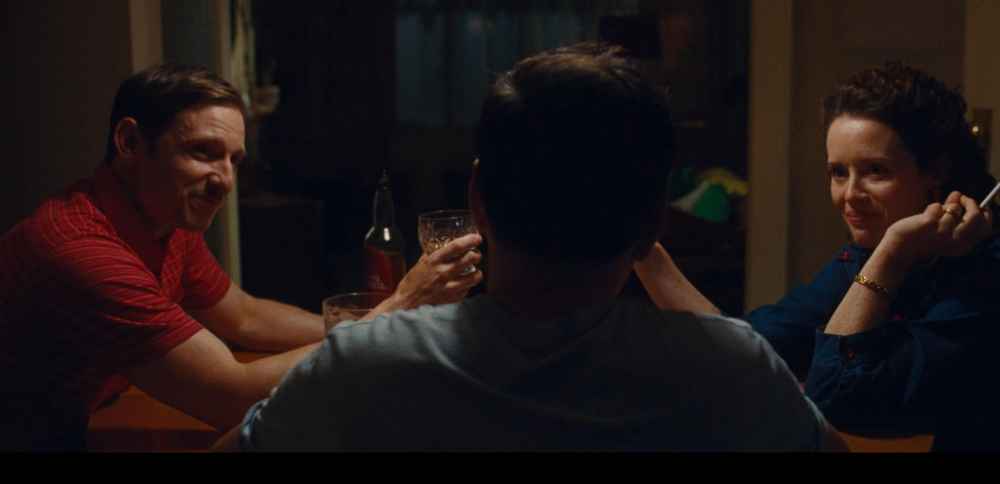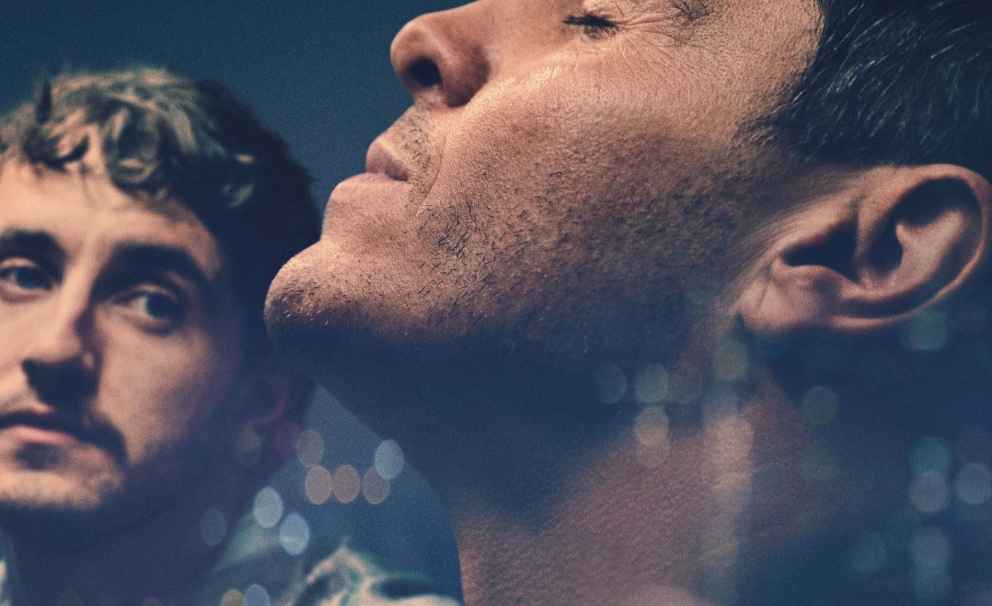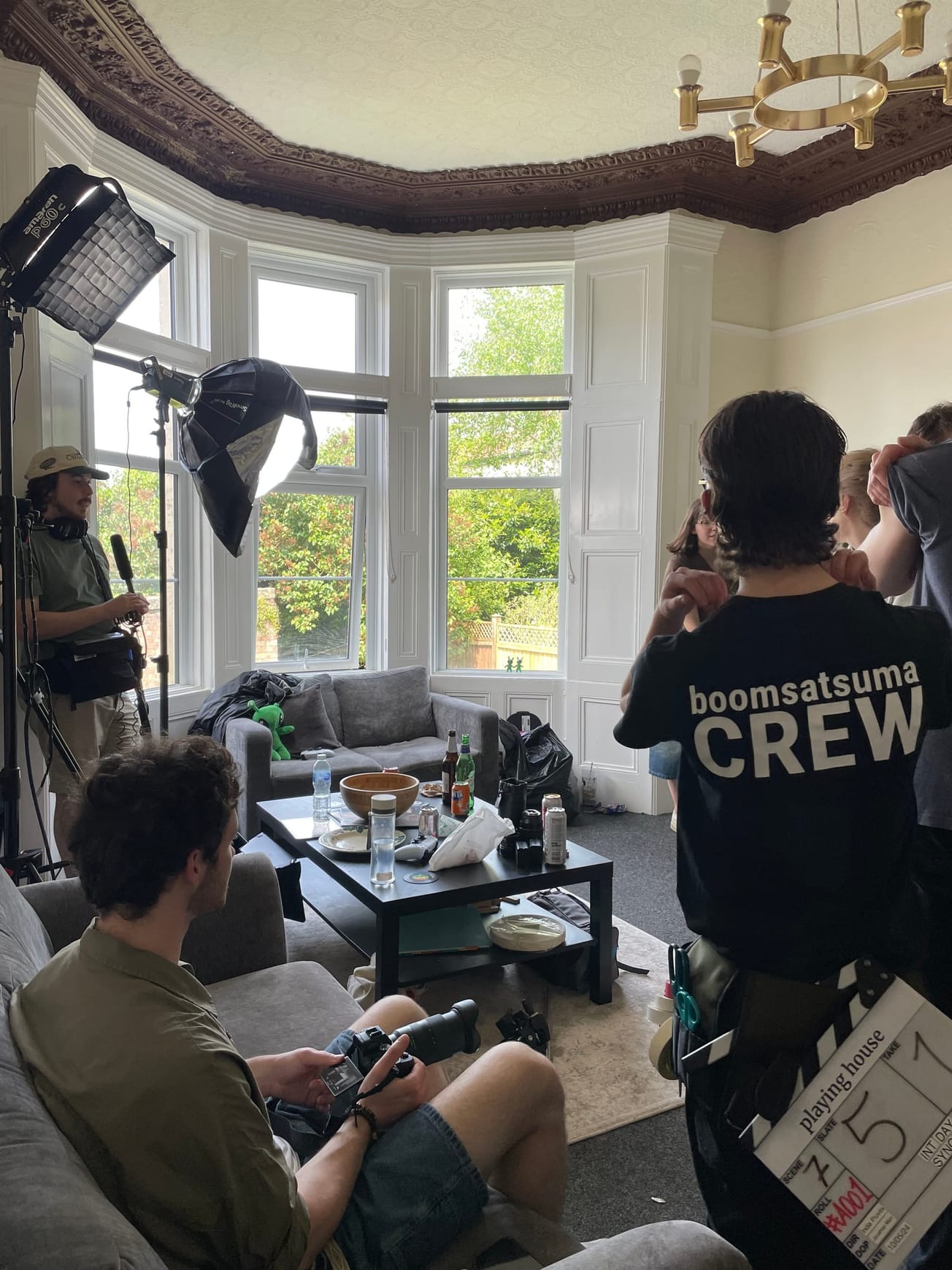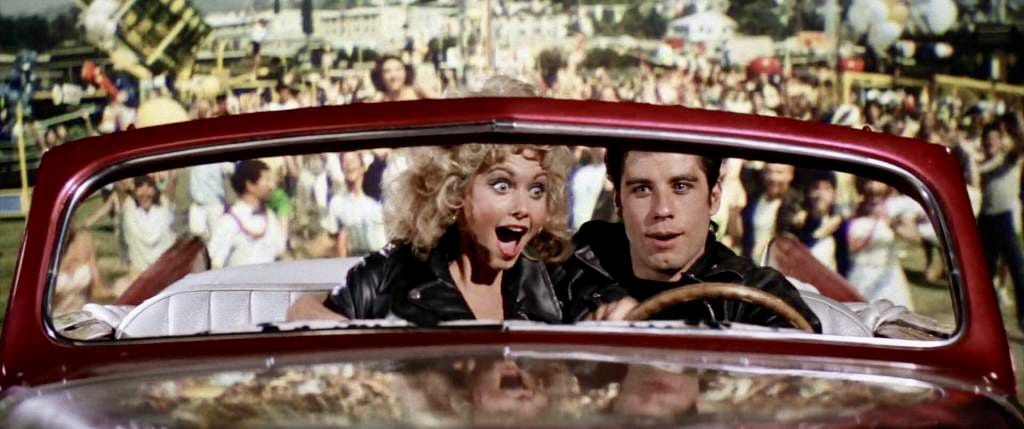By Anna Dodd, Second Year, English Literature
All of Us Strangers is a vibrant firework display of passion, grief, nostalgia, and loneliness. Inspired by Japanese fiction, Andrew Haigh takes Taichi Yamada’s novel Strangers and plugs into the mains: the film stuns both in its electric, quite literal, highs of drugs and intimacy as well as the moments of stillness and solitude that inevitably follow.
Haigh balances two storylines, one of a blooming romance and the other a grieving process, interlinked through the central protagonist, screenwriter Adam (Andrew Scott). We meet Adam in his high rise, new-build flat, where it is made clear that Adam is undeniably alone, we see him loll on his sofa watching daytime TV and working at home from his desk, whilst old records croon in the background.
His fate seemingly changes when his neighbour, Harry, (Paul Mescal), appears at his doorway late one night, intoxicated. The film then takes a turn for the metaphysical as we follow Adam on a trip to his childhood home, where he reunites with his parents, who appear to be living just as they did in the 1980s, preceding their tragic death in a car crash – a great loss that Adam clearly has not processed.

His parents (Jamie Bell and Claire Foy) are frozen in time at the age Adam now is, and this makes for both an interesting and heartbreaking portrayal of grief that is consistently handled with great care and thought.
A key theme of All of Us Strangers is Adam’s gay identity, which is discussed both in a modern sense between him and Harry, in a light-hearted joke about queer labels, and more seriously through coming out to his parents, both stuck in the 1980's frame of thought on what it is and looks like to be gay.
It is scenes like these which are perhaps what make the film so intensely moving, we watch Adam experience moments that he has dreamed of in the twenty years since the loss, such as being tucked into bed by his mother in his childhood pyjamas, made large to fit his now adult frame.
Visually the film is breathtaking, Jamie Ramsay’s cinematography is ethereal, especially in its captivating lighting choices: magenta and indigo hues in a thriving London bar and amber sun swimming across a face in the haze of the morning.
The overall sense is that All of Us Strangers is a film incredibly well assembled and in control of itself. Haigh builds poignance and breaks it at just the right moment, and gives space for comedic relief, allowing the audience to relax and grow to love the characters, who are consistently presented as imperfect, emotional human beings just like the audience.

The characters are so believable due to the quartet of stellar performances from the film’s main cast, all of whom step into their roles with depth and thought. The film relies though on Andrew Scott as Adam, in arguably his strongest role yet. His execution is subtle, driven by acute emotion in his eyes and his chemistry with Paul Mescal as Harry is charged and thrilling to watch.
For all that it does well, the film’s conclusion may leave you feeling deflated, which is great shame for a film that shines so brightly in every other aspect. Nonetheless, it remains an exceptional and warm portrait of human connection that is consistently emotionally effective.
Featured Image: IMDb
All of Us Strangers is set for cinema release on 26th January









